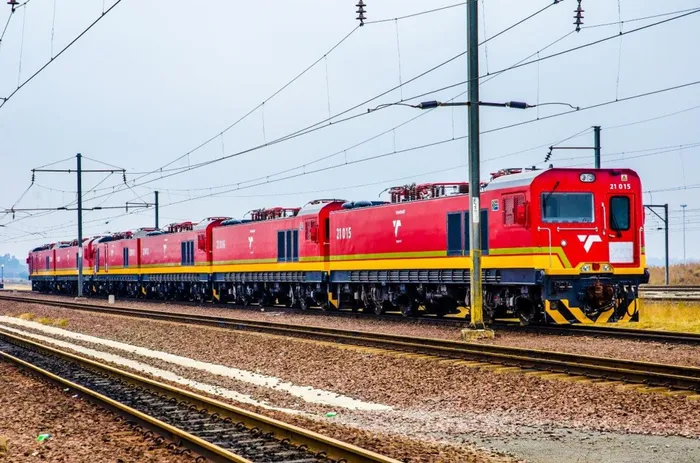South Africa's rail reform: RFA supports change, DA raises concerns over Transnet monopoly

Transport Minister Barbara Creecy's announcement on Transnet's TOC slot allocation marks a pivotal moment for South Africa's logistics industry.
Image: Supplied
Transport Minister Barbara Creecy’s announcement on Transnet’s Train Operating Company (TOC) slot allocation has been welcomed by the Road Freight Association (RFA) as a historic step for South Africa’s logistics system, but the Democratic Alliance (DA) has criticised the plan for maintaining Transnet’s operational monopoly, warning it risks perpetuating inefficiencies and corruption.
Kevin van der Merwe, acting CEO of the RFA, said the milestone demonstrates government commitment to structural reforms that could improve freight logistics.
“For a long time, the RFA has maintained that the country's economic success is dependent on a well-integrated and collaborative freight logistics network. Both rail and road have critical roles to play in the efficient and cost-effective movement of freight in and through South Africa,” he said.
The first 11 private TOCs have been notified to engage with Transnet to prepare contracts, which will define the conditions under which they operate. These new entrants are expected to increase annual freight volumes from 160 million tons to 250 million tons over the next five years, representing a 90 million-ton increase.
Van der Merwe said the development could “reduce congestion on our roads by returning rail-friendly freight back to rail, while ultimately reducing the cost of logistics in South Africa.”
He added that expanding rail freight will create jobs and necessitate partnerships with road operators to move goods to and from trains and multi-modal hubs.
However, Dr Chris Hunsinger MP, DA spokesperson on transport, argued that the announcement does not go far enough.
While acknowledging that allocating conditional slots to new TOCs is “a step in the right direction, but it is not nearly enough,” he said Creecy’s plan leaves Transnet’s operational monopoly intact, guaranteeing “failures, corruption, and poor maintenance.”
Hunsinger said South Africa’s freight rail can only grow the economy if the private sector is allowed to operate and manage the rail network.
“Transnet is financially defunct, relying on treasury guarantees to survive,” Hunsinger said.
“Instead of freeing our freight rail from this mismanaged burden, she has decided to protect Transnet’s place in managing rail operations.” He said concessioning operations to private freight rail entities would allow investment, efficient operations, new signalling systems, and competition, which could reduce costs across the logistics chain.
Hunsinger also criticised the timeline for expected additional freight volumes, saying that waiting until the 2026/27 financial year is “dangerously slow” for exporters, farmers, and miners who are already facing high logistics costs. He warned that upgrades to infrastructure, maintenance backlogs, and measures against theft and vandalism remain “pipe dreams” unless private sector concessions are implemented.
The RFA said it will monitor developments over the next 12 months, with TOCs expected to start operating in the latter half of 2026.
Van der Merwe concluded that initiatives such as this “have the potential to improve South Africa’s economy through employment opportunities and wealth creation for all its citizens, while positioning South Africa as an efficient, cost-effective, vibrant logistics hub, chain and developmental node for all modes of transport.”
Related Topics: